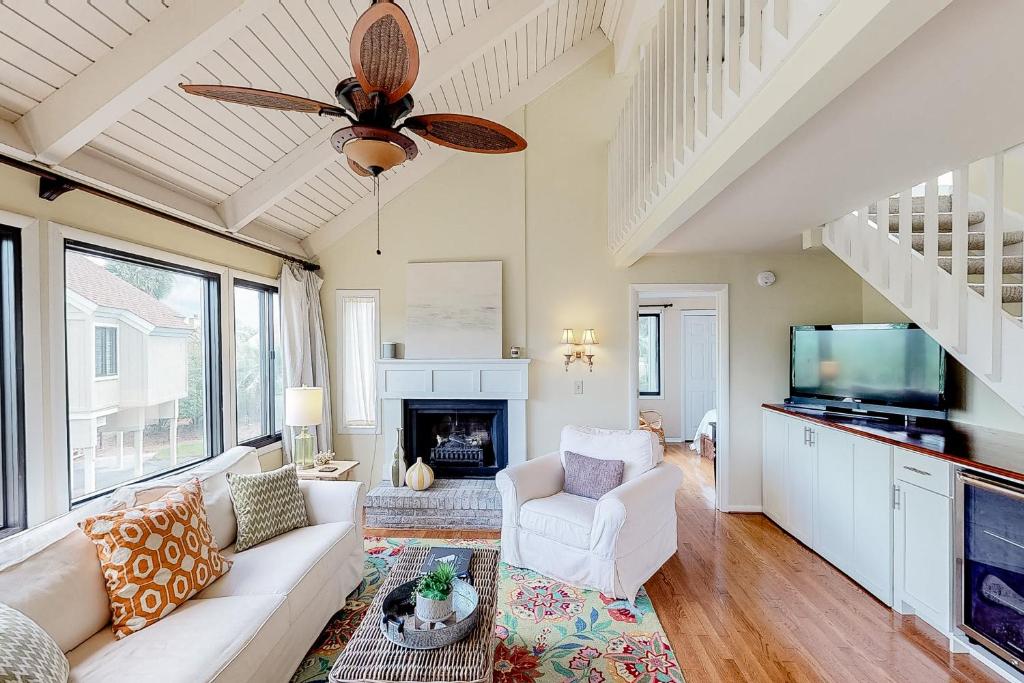
Accessory Dwelling Units (ADUs) are additions that create separate or interior secondary dwellings on a single-family lot. ADUs may be small, but they can become a second source of income or provide multigenerational housing with added privacy.
They are ideal for home offices, guest suites, in-law apartments, and rental units. However, before you invest in a new construction or renovation project, there are a few things you should know before committing to an ADU.
*Increases the value of your property
If done correctly, building a tiny house in your backyard can add both aesthetic and monetary value to your property. If you ever need to sell your home, potential buyers will like the idea of having extra space to use or rent.
*They provide more space
And, speaking of space, we can’t get over the fact that ADUs provide additional space. Since they are self-contained housing units, building an ADU on your property means having an extra bedroom and bathroom. However, the main selling point of the ADUs is that this additional space can be used.
ADUs are adaptable, and this extra space can easily be transformed into a home office, which will be beneficial in the post-COVID era, a guest house, or a place for your older children to live and appreciate.
Depending on the type of ADU you choose, you can also rent it without fear of compromising anyone’s privacy. Of course, you can rent any type of ADU, but the independent ones are usually the ones that find tenants quickly and easily.
*ADUs allow you to downsize
As we age, we find our huge single-family homes difficult to maintain. Just cleaning them takes a few days and maintenance goes much further. That’s why, for decades, people approaching retirement have sought to downsize.
However, letting go of a home you’ve called your own for decades is no easy task. That’s why ADUs are the perfect compromise. With a backyard cottage, you can downsize and rent out your original residence to kill two birds with one stone: downsize and earn additional income.
* Multigenerational living
Of course, ADUs aren’t just ideal for seniors, but they’re the ones that benefit them the most. You may not know it, but ADUs are also called granny flats or in-law units because they often house the parents or in-laws of the owners of the primary residence.
Suppose you have elderly parents or in-laws who can no longer live on their own. You want to move them in with you, but you also want to keep your (and their) privacy.
An ADU is a perfect solution. It also works well the other way around: your in-laws or parents can let you have their primary residence while they downsize with an ADU in the backyard.
Although ADUs are a great feature to add to your home, they do have some downsides. However, with the government relaxing the laws regarding ADUs, those disadvantages have diminished.
*Loss of basic storage (and yard) space
Regardless of the type of ADU you choose, you will lose some space, be it storage or yard space.
If you convert your garage, you no longer have that storage space, and if you carve out a portion of your garden to build a backyard shed, your garden will naturally get smaller. That’s something to consider if you’re a fan of wide space.
*Interruption of daily life
Earning extra income from your ADU rental is fantastic. However, it also means that you will be sharing your space with someone. That brings interruptions to your daily life. Although an ADU is a separate unit (even if it is part of your primary residence), it is still a unit in close proximity to you.
You will not be able to ignore tenants or pretend they are not there. They will bring some kind of interruption.
These self-contained units are often called backyard cabins or “granny pods”. They are separated from the main house, giving its residents additional privacy.
Attached ADUs are an addition that extends from the existing primary residence. It’s a good option when there’s no convertible garage, shop, or lot space for a stand-alone ADU.
Garages and workshops often have ample space for a comfortable ADU. The ADU can be added to an existing garage as a remodel or included in a new construction design.
Garage conversions differ from an above garage ADU in that the garage completely changes function from a storage space to an ADU, top to bottom. These ADUs may be attached to or separate from the primary residence.
Like garage conversions, basement conversions take advantage of the home’s existing structure. The basement becomes an additional living space, often complete with a private entrance.
An ADU almost always requires a permit, but it depends on state and local laws.
The growing need for affordable housing has led some states to relax zoning laws to promote the use of ADUs as an affordable option.
The regulations stipulate whether the owner must live on the property, parking requirements, and occupancy numbers based on unit size.
Consider the property’s long-term consequences before committing to an ADU. An auxiliary dwelling unit (ADU) is legally connected to an existing single-family home. It is not possible to sell it separately.
Development standards differ from one state to the next and from one city to the next. Some cities limit the size of ADUs to less than 500 square feet within the existing residence (called a junior accessory dwelling unit).
By comparison, others limit the size to 1,000 square feet and allow an attached or separate unit. ADU width, length, and height requirements may also apply.
Here at K Remodeling, we can build you the custom ADU you need, from concept to completion. Call K Remodeling regarding your new ADU.